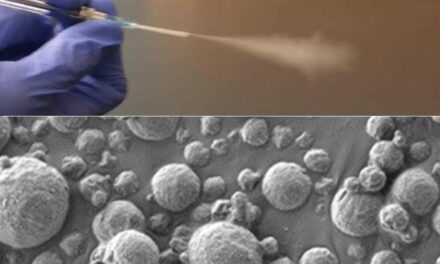Scientists have taken microscopic images showing that the protein ties tethering cells together are severed in lung cancer cells, which means they can break loose and spread, according to the research published in Cell Reports.
Researchers at the Cancer Research UK Manchester Institute found that the ties that lash cells together, which are controlled by the protein TIAM1, are “chopped up” when cell maintenance work goes wrong. A Science Daily news report notes that healthy cells routinely scrap old cell parts so they can be broken down and used again.
However, the aforementioned process spirals out of control in lung cancer cells, which scrap too many TIAM1 ties. According to Science Daily, targeting this recycling process could stop lung cancer from spreding by keeping the cells stuck firmly together.
Angeliki Malliri, PhD, explains, “This important research shows for the first time how lung cancer cells sever ties with their neighbours and start to spread around the body, by hijacking the cells’ recycling process and sending it into overdrive. Targeting this flaw could help stop lung cancer from spreading.”
Neil Barrie, senior science information manager of Cancer Research UK, states, “Early-stage research like this is essential to find treatments which could one day block cancer spread — which would be a game changer. It’s also crucial that we find ways to diagnose the disease earlier, when treatment is more likely to be successful and the cancer is less likely to have spread.”
The study was conducted by the University of Manchester, which includes the Cancer Research UK Manchester Institute, who joined forces with Cancer Research UK and The Christie NHS Foundation Trust to form the Manchester Cancer Research, which enables doctors and scientists to work together to turn scientific advances into patient benefits sooner.
Photo Appears Courtesy of Vaughan et al. Cell Reports.
Sources: Science Daily, Cancer Research UK










